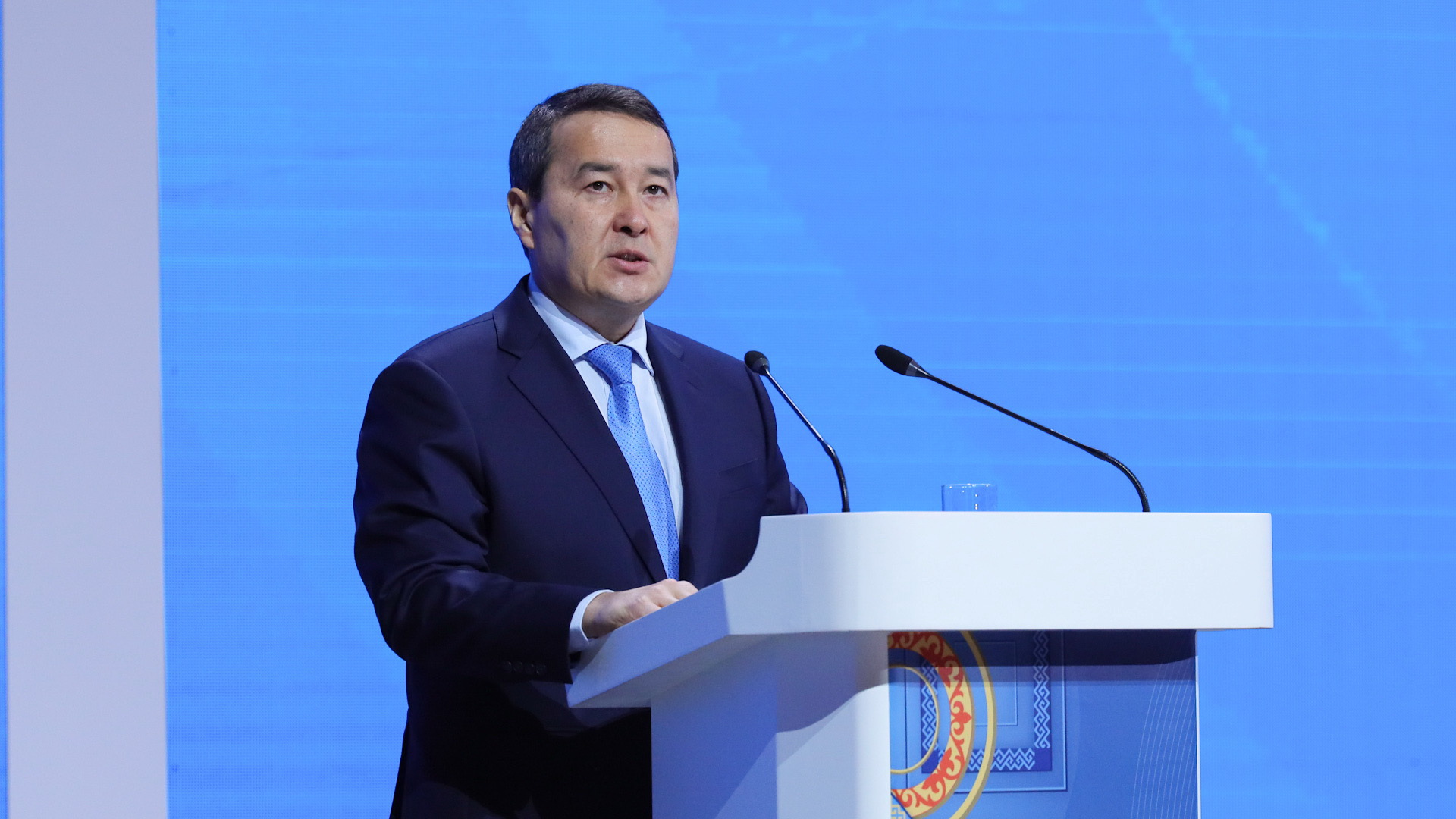ASTANA – Large subsoil users, represented by companies including Eurasian Resources Group (ERG), Kazakhmys, Kazzinc, and KAZ Minerals, signed offtake contracts, long-term agreements and memorandums totaling 58 billion tenge ($124.9 million) with Kazakh producers at the Kazakhstan-Produced Content 2.0 Forum on Nov. 16 in Astana, reported the Prime Minister’s press service.

Alikhan Smailov at the Kazakhstan-Produced Content 2.0 Forum. Photo credit: primeminister.kz.
Discussing new measures to support domestic producers, Prime Minister Alikhan Smailov highlighted that offtake contracts with quasi-public companies, those with international ratings of BB-, and large systemically important enterprises are now considered firm collateral for loans.
Smailov pointed out ongoing efforts to cancel the CT-KZ and industrial certificates, which confirm the status of the Kazakh manufacturer.
“No need to obtain any certificates. Information about manufacturers and their products will be available online in a unified register,” he said.
The Prime Minister underlined the decision to completely exclude non-standardized goods from trading on exchanges, with details to be announced later.
He mentioned a new regulatory policy that eliminated 9,000 irrelevant requirements, with another thousand set to be removed by the end of the year.
An automated risk management system will schedule inspections without the human factor from Jan. 1, aiming to halve the number of inspections, he added.
Discussing the current work to digitize tax administration, Smailov recalled the introduction of a retail tax regime at a rate of 4% this year to stimulate small and medium-sized businesses (SMEs). Additionally, the total financial burden was reduced to 20% with a single payment from the wage fund for micro and small businesses.
Aiming to stimulate investment activity on the part of large businesses, new projects are exempt from the mineral extraction tax for five years. New projects in the manufacturing sector will be exempt from taxes for three years, according to a new Tax Code effective from 2025.
Acknowledging the surge in Kazakhstan’s economy, Smailov informed that the share of SMEs also rose to 36.4% of GDP. The number of people employed in this sector grew 14% to 4.3 million.
To reduce import dependence, Smailov emphasized President Kassym-Jomart Tokayev’s goal to increase local content to 60% within three years. He cited three largest consortia in the oil and gas industry, accounting for 75% of purchases in the entire energy sector.
In contrast, the mining sector has a 15% share of purchased goods, mechanical engineering stands at 13.5%, and pharmaceuticals at 20%.
He stressed the importance of organizing systematic work to establish business contacts between manufacturers and large entrepreneurs, fostering the development of the SME sector around large systemically important enterprises.
He stated that large enterprises should adopt their own local content development programs, which necessitate the development of domestic personnel to replace foreign specialists.
“In this vein, our large enterprises should take patronage over educational institutions with subsequent employment of graduates,” he stressed.
